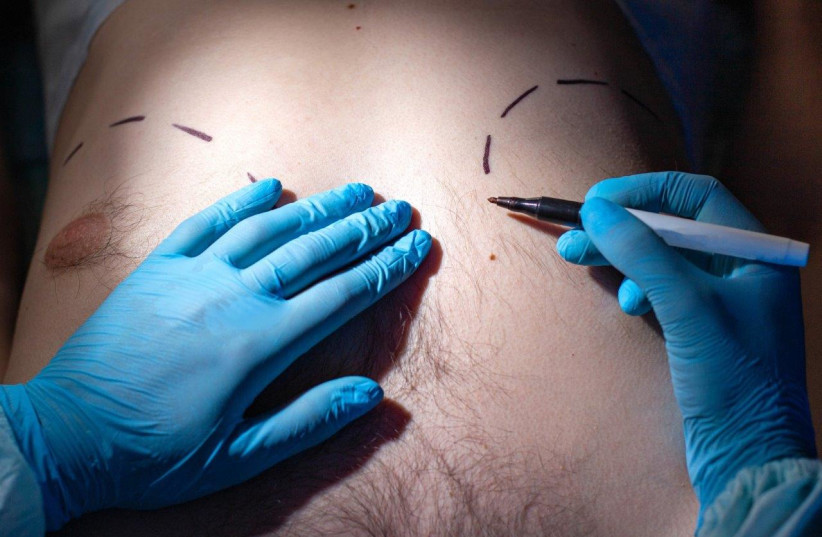Plastic surgery is on the rise among Israeli youth, according to a new report from the Israel Association of Aesthetic Plastic Surgeons. The report found a 37% increase in the demand for plastic surgery among teenagers this summer.
The report, which was published in last week, outlined the most popular procedures among Israel’s young people. Rhinoplasties, earlobe attachment, and breast augmentation were determined to be the most popular types of cosmetic surgery.
As plastic surgery continues to rise, Israeli health experts contend with how to educate the public about the risks involved and how to ensure surgeries are safe.
What’s behind the rise in cosmetic surgeries?

Experts believe the rise behind plastic surgery among Israeli youth can at least be partially attributed to unrealistic societal standards regarding beauty – standards that are amplified by social media.
"Social networks influence the changes in the beauty model among teenagers all year round, but during the holidays we see a dramatic increase in their performance,” explained Dr. Meir Cohen, chairman of the Israel Association of Aesthetic Plastic Surgeons.
“Recently a 16-year-old girl came to my clinic and asked me if I could do a breast augmentation for her,” Dr. Ron Azaria, Secretary General of the Israel Association of Aesthetic Plastic Surgeons, said. “My first professional instinct was to tell her to wait because the breast will grow further.”
Amid the rise in social pressure, experts have released guidelines for parents to comfort children and youth who approach them about potentially getting plastic surgery.
Young Israelis with insecurities about their nose should be reminded that in smartphone selfies, the nose appears larger, therefore it is recommended that parents talk to the child about their nose in front of a normal mirror or pictures with a normal camera.
As for young patients who seek breast augmentations, experts recommend that boys seeking fat reductions in their chest should first try to lose weight, while girls should wait until the age of 21 since the breasts are still in the process of development. In fact, surgery before that age can change the natural course of physical development.
The Israel Association of Aesthetic Plastic Surgeons further advises young Israelis to make safe decisions regarding cosmetic surgeries – regardless of what their motivations may be.
How to keep plastic surgery safe?
Experts call on the parents to make sure that they have chosen a surgeon certified by the Ministry of Health in order to ensure that the doctor has a license to practice medicine in his field of expertise, has learned to operate under the guidance of seasoned experts in plastic surgery, and is regularly updated on scientific medical innovations.

While Israelis under the age of 18 must have a signed consent form from their parents before undergoing any procedures, the Israel Association of Aesthetic Plastic Surgeons warns against going overseas for procedures that may seem more economic or have fewer regulations involved.
"Each year in the health system in Israel, approximately 80 Israelis are treated by plastic surgeons in emergency rooms, in the plastic departments, and in the surgeons' clinics following a complication of an operation or procedure conducted outside of Israel,” the association said in a statement. “These are severe infections, bleeding, delayed healing, lifelong scars and sometimes even paralysis, nerve damage, and a real risk of death… That is why it is essential that the public understands that every operation carries risks and requires a recovery period under the supervision of the plastic surgeon who knows how to prevent complications in advance and how to treat them if they occur."
In the face of this complicated medical and ethics issue, experts know the gravity of the task at hand – making sure the Israeli public makes educated decisions with their health as the main priority.
“With teenagers, we make sure, together with the parents, that the children fully understand the meaning of the change that the surgery can bring about – that they are physically and mentally prepared and motivated for the recovery period and are not being impulsive because they saw someone on Instagram," Cohen said.
